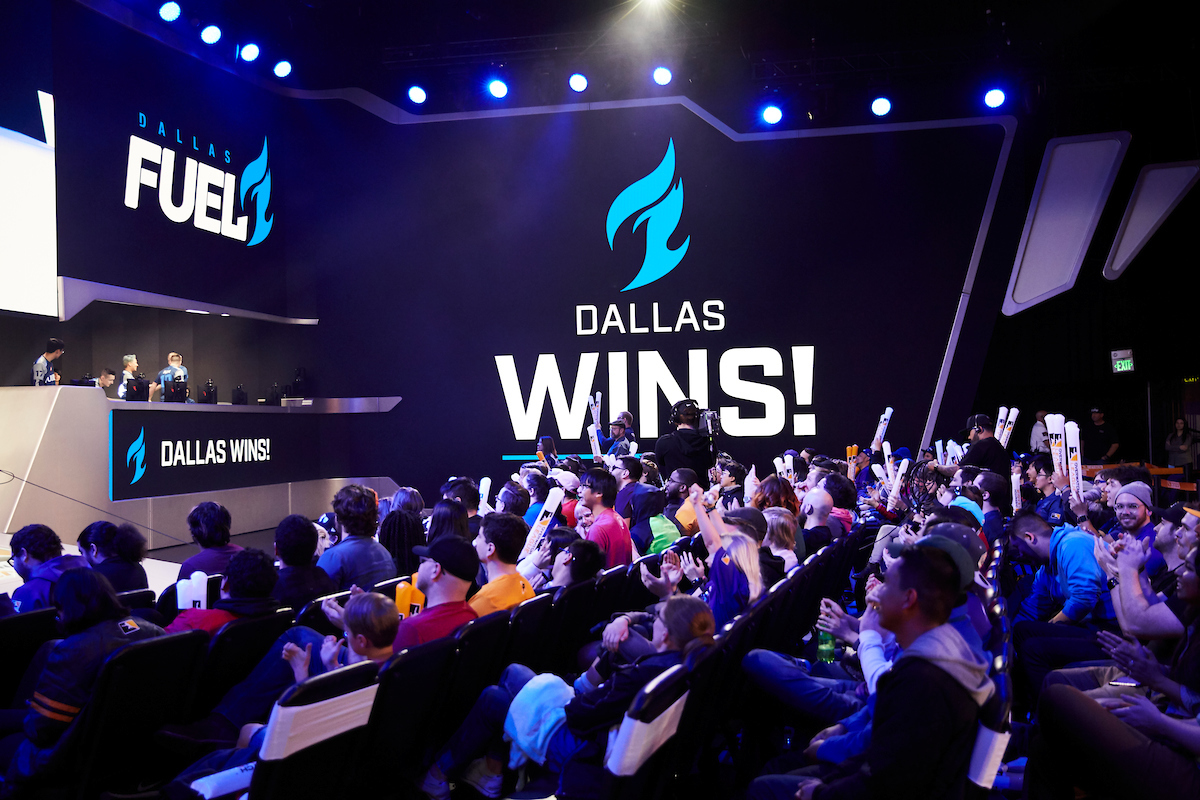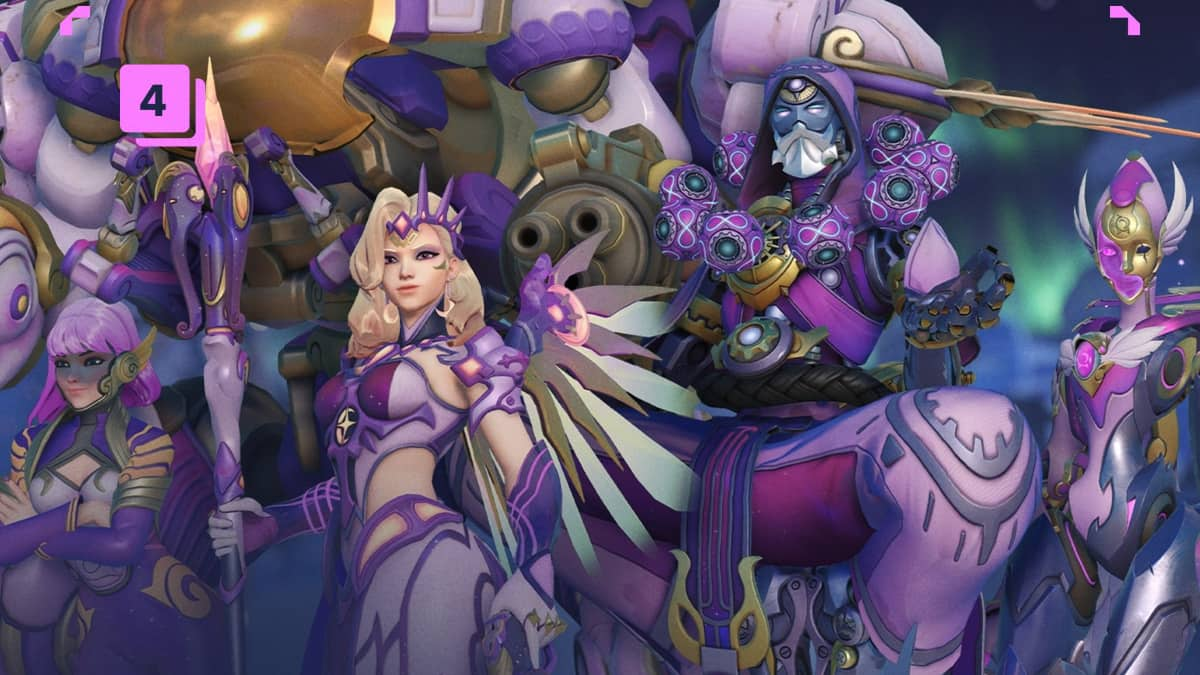For what feels like centuries, Overwatch players have been begging developers to improve the game’s competitive experience. This week, game director Jeff Kaplan announced the introduction of Hero Pools to Overwatch in Season 21 of competitive play. The new feature will “disable” multiple heroes on a weekly basis. It’s not quite the hero ban system fans have been clamoring for, but it’s a massive change to the infrastructure of ranked competition.
Despite offering some of the perks that a hero ban system would have promised, a good portion of the player base is not as enthusiastic about Hero Pools as one would expect. On the Overwatch forums, posts like “Hero Pools Will Kill Overwatch” began to appear. Some popular players decried the feature, saying they didn’t want developers to formulate their game experience.
The reaction from the Overwatch player base seems divided, but here are a few reasons why the addition of Hero Pools will only improve the ranked experience.
From stale meta to no meta
The existence of a “stale meta” has been the biggest complaint by Overwatch players, from casual fans to Overwatch League professionals. As heroes are updated, certain team compositions tend to dominate the high-level competitive circuit. These “metas” hang around until balance patches alter heroes enough to render them irrelevant. For example, the last few patches have focused on reducing the overwhelming power of shield heroes.
Hero Pools wouldn’t even be the first time Overwatch developers instituted a large-scale change to avoid stale metas. In August 2019, role queue was added into quick play and competitive mode. Role lock was also added into the Overwatch League, forcing teams to field two supports, two damage dealers, and two tanks in each match. While developers stated the change was a long time coming, role queue effectively killed the omnipresent triple support, triple tank meta known as GOATS.
Over the past few months, shield heroes and a select group of DPS heroes have dominated high-level competitive play. Sensing the presence of another stale meta, players have begged developers to either aggressively balance heroes or add a feature that would force players to get creative.
With Hero Pools, stale metas won’t be an issue for a very long time. If four to five heroes are disabled from the game per week, there’s a high probability that at least two “meta” heroes will be among them. Without the crutch of shield heroes like Orisa or healers like Baptiste, players will have to develop compositions on the fly. They’ll have to think of how certain heroes work on specific maps or counter-pick the choices of their enemies.
Metas will eventually spring up after players get the hang of Hero Pools. People will begin to notice which heroes work best if certain other heroes are unavailable. But even these pseudo-metas will require some creativity and variation far beyond the usual understanding that only six to eight heroes are viable at one time.
Less “meta bullying”
When a certain meta is dominant, most competitive players begin to believe that those heroes are the only correct choices within the game. Sometimes, this is an incredibly valid assertion. In the current meta, Orisa and Sigma are far more useful than other shield heroes at nearly every level. Other times, players erroneously believe that high-level hero choices are the only choices. If professionals haven’t played Widowmaker in a certain amount of time, for example, choosing that hero in competitive play is considered a “throw pick.”
Especially at lower ranks of competitive mode, “meta bullying” becomes a common occurrence. A player who may not be familiar with the meta picks a hero of their choice. Upset with this decision, the other members of that team urge them to make another selection that better aligns with what is currently “correct” within the game. This sometimes turns aggressive. Even if the first player will do a fine job on their initial choice, they’re forced to switch because of social pressure.
With Hero Pools, this becomes much less of a problem. If a standard meta is not present, very few people beyond the highest level of players will know what the absolute correct choice is for any given match. Creativity may reign in lower ranks. Players will have the upper hand to test out heroes and see what works best instead of relying on one single template for success.
In this case, ignorance breeds joy within Hero Pools. If no one knows what the correct choice is, and especially if there isn’t a single correct hero choice, they’ll be less likely to pressure others into conforming to their ideas.
The community will deal with it
When role queue debuted in the latter half of 2019, the Overwatch community made similar complaints to the ones they’ve made about Hero Pools. Some players rejected the idea of being “forced” into a certain play style by developers. Players who enjoyed flexing across all roles didn’t like the restriction.
Despite these complaints, most of the community has benefited from the structure that role queue created. Team compositions are more organized and set up for success; many players forget the days when having no healers was a very real concern. Long queues, especially for DPS players, have been the only real consequence from the 2-2-2 change.
Change is difficult and the Overwatch community never seems to handle it well. Hanzo had a rework in 2018 and some players still mourn the loss of Scatter Arrow. Those reworks led Hanzo to become a competitive mode staple, get play time in the Overwatch League, and succeed as a hero in ways he wouldn’t have otherwise.
Mercy’s ultimate was drastically changed in late 2017 to the point where her biggest fans threatened to quit the game. That singular change led to an overwhelmingly high usage of Mercy during the first few months of the Overwatch League.
Hero Pools isn’t even a permanent change in the way role queue was. On the topic of Hero Pools, Jeff Kaplan said that if the development team and community doesn’t “feel like it’s a positive change during Season 21, then we won’t bring it back in Season 22.” In the latest Developer Update, Kaplan added that the developer team is trying to be more open about reverting changes if necessary.
Developers “disabling” heroes in competitive mode will absolutely change Overwatch as we know it. That doesn’t mean the change is automatically negative. This change forces the community to be creative with team compositions and develop strategies that work to their own strengths, not those set forth by professionals. Players will have to step outside of their comfort zones to support their team. Hero Pools adds a level of well-meaning chaos to the game. Give that chaos a chance.






Published: Jan 31, 2020 08:06 pm